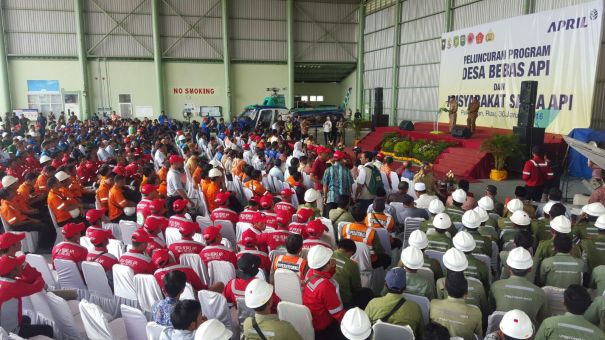Indonesia’s weather is generally split into two seasons, the wet and dry spell. The dry spell, usually occurring between May and September, has historically been a bane for both farmers and pulp-and-paper companies like Sukanto Tanoto’s APRIL. The dry weather, coming in tandem with droughts in the region, often leads to an increased vulnerability for forest and land fires. With 2017 set to see a more intense dry spell than previous years, Head of National Disaster Management Agency Willem Rampangilei has warned companies to be on standby for a rough ride ahead.
Rampangilei issues a call to arms
Speaking at the launch of APRIL’s Fire-Free Village Programme (FFVP) 2017, Rampangilei urged all companies, stakeholders, and the government to be on standby, to be ready for action should fires break out. While the government has set aside funds of Rp 2 trillion (USD 150 million) to cope with disasters including forest and land fires, companies must be prepared. To that end, Rampangilei praised and provided support for Sukanto Tanoto-led APRIL’s FFVP, and called upon others to follow suit.
Sukanto Tanoto, APRIL, stands ready
The FFVP, one of APRIL’s forest management projects, is a multi-stakeholder effort that seeks to promote fire prevention and suppression. Successfully launched in 2015, it has been lauded for its effectiveness, and even served as the prototype for the Fire-Free Alliance. The FFVP is a testament to the company’s willingness to engage with the community, a mindset very much influenced by their founder, Sukanto Tanoto.
Sukanto Tanoto, chairman of RGE –which manages companies including APRIL, Sateri, and Pacific Oil and Gas –has been a staunch believer in creating a community-centric mindset for all his businesses. In that regard, he has been heavily reliant on his 4Cs philosophy: creating good for the Community, Country, Climate, and Company. With the haze and climate issues beginning to take centre stage issues, it seems that such a policy is paying off as companies, smallholders, and governments will surely need to work together.
